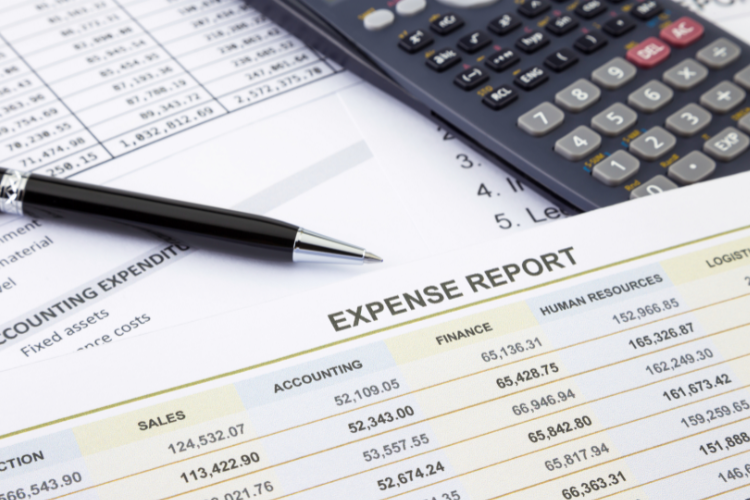The Ultimate Guide to Income Tax Basics for Barristers: Cash Basis, Allowable Deductions and Tax Deductible Expenses

Jack Ross Chartered Accountants: Our Guide to Barristers’ Income Tax
Welcome to Barrister.expert, a brand division of Jack Ross Chartered Accountants. Founded in 1948, Jack Ross has served the legal community with accounting services for decades.
The vast majority of barristers are self-employed and this involves submitting income tax returns to HMRC every year. This comprehensive guide simplifies complex topics like cash basis accounting, allowable expenses, and VAT, among others. Whether you are a barrister looking to understand your income tax liabilities or an accountant specialising in legal finances, this article is a must-read.
Why Do Barristers Need Specialised Financial Management?
The Unique Nature of a Barrister’s Income
The income of a barrister is often complex and variable, making it different from other professions. Many barristers trade as self-employed professionals, which brings its own set of challenges and benefits. Understanding the nuances of a barrister’s income is crucial for effective financial management. For instance, trading income can vary significantly from one tax year to another, affecting your income tax calculations.
The Role of Accountants in Financial Planning
Specialist barrister accountants can provide invaluable advice tailored to the unique financial needs of barristers. They can help with tax planning, cash basis accounting, and ensuring that all allowable expenses are claimed. Accountants can also guide you on how to trade as a barrister in the most tax-efficient manner.
Jack Ross has decades of experience in dealing with the finances of legal professionals. Use the contact form on the right and one of our barrister tax experts will be in touch.
What is Cash Basis Accounting and How Does it Affect Barristers?
Understanding Cash Basis
Cash basis is a straightforward accounting method where income is recognised when received, and expenses are recognised when incurred. This is often the standard practice for barristers, especially during their initial years of trading.
Cash Basis for Career Beginnings
For the first few years, many barristers opt for cash basis accounting to simplify their tax affairs. This approach allows them to focus on building their practice without getting bogged down by complex accounting requirements.
How is Income Tax Calculated for Barristers?
Taxable Income and Allowances
Income tax for barristers is calculated based on their net income, which is their gross income minus allowable expenses. Allowable expenses can include business travel, office supplies, and even some household expenses if a part of the home is used exclusively for business purposes. These expenses are allowable as a deduction against your trading income.
Special Tax Provisions for Barristers
There are special tax provisions that apply exclusively to barristers. These can include specific allowances, exemptions, and even tax relief in certain situations. Being aware of these can help you take advantage of them and reduce your overall tax burden. For example, barristers may qualify for the 100% annual investment allowance on certain capital items.
The Jack Ross Team has been an absolute delight. Professional, nice and fast during the Audit procedure. Thank you Jack Ross Team.
Very good service from the Jack Ross Team. They gave us good advice and completed a very efficient audit. They have a friendly and competent team. I would surely recommend them.
Brilliant service from the Jack Ross team in setting up several companies in very quick time, along with providing associated accountancy advice. Can recommend wholeheartedly as a leading accountancy practice with a can-do attitude.
What are the Allowable Expenses for Barristers?
Business Travel and Mileage
Business travel expenses are fully deductible if they have been incurred exclusively for business purposes. This includes travel to court, client meetings, and even some mileage costs. Keep your records meticulously to claim these allowable travel expenses.
Office and Household Expenses
Expenses for maintaining an office or chamber are generally allowable. Additionally, if a barrister uses a part of their home exclusively for work, some household expenses like mortgage interest and council tax can be apportioned and claimed as business expenses. For example, a spare bedroom used as an office would fall within this category.
How Does VAT Impact Barristers?
VAT Registration and Rates
Barristers who earn above a certain threshold must register for VAT. Understanding the different VAT rates and how they apply can be complex but is essential for accurate accounting. It is crucial to keep a business bank account separate for VAT purposes.
VAT Purposes and Deductions
For VAT purposes, barristers must keep meticulous records of their income and expenses. Certain expenses that are incurred for business purposes can also be reclaimed as input VAT, reducing the overall VAT liability. You should be able to claim back VAT on business miles travelled and the market value of the car if used for business purposes.
What Role Does HMRC Play in Barrister Taxation?
Compliance and Record-Keeping
HMRC requires all self-employed professionals, including barristers, to maintain accurate financial records. These records are crucial when filing annual tax returns and can serve as evidence in case of an audit. Records should be kept for a minimum of six years to comply with HMRC regulations.
HMRC Audits and Investigations
HMRC can audit businesses and professionals to ensure compliance with tax laws. Barristers should be prepared for such eventualities by keeping all financial records up-to-date and consulting with their accountants regularly. Overdrafts and fixed monthly expenses should also be carefully documented.
How Should Barristers Account for Debtors?
Understanding Debtors in Legal Practice
Debtors are individuals or entities that owe money for services rendered. For barristers, this could include clients who have not yet paid their legal fees. It is crucial to enter your details accurately in accounting records to track these debtors.
Accounting for Debtors and Cash Flow
Managing debtors effectively is crucial for maintaining healthy cash flow. Barristers should have a system in place to track and follow up on outstanding payments to ensure financial stability. Loans taken to sustain the practice should be accounted for and used to pay off any outstanding debts when possible.
What Financial Records Should Barristers Keep?
Importance of Record-Keeping
Keeping accurate and comprehensive financial records is not just a requirement but also a best practice that can help barristers manage their finances more effectively. This includes keeping track of lease payments and any interest arising from overdrafts.
Types of Records to Maintain
Financial records can include invoices, bank statements, and receipts for expenses. These should be kept for a minimum of six years to comply with HMRC regulations. It is advisable to maintain a separate business bank account for easier record-keeping and compliance.
Conclusion
Opting for cash basis accounting in the initial years can simplify your financial oversight, while consulting with specialist barrister accountants can provide invaluable, tailored advice. Meticulous record-keeping is best practice, especially for income tax and VAT calculations. Being fully aware of all allowable expenses can significantly minimise your tax liabilities. Preparing for potential HMRC audits by maintaining comprehensive financial records can save you from future headaches. By adhering to these guidelines, barristers can manage their finances with greater ease and confidence.
Seeking specialised accounting services for barristers? Complete the contact form below; a Jack Ross advisor will promptly contact you to discuss tailored solutions.

Cash basis accounting is a simplified method where income and expenses are recognised when received or incurred. This approach is often ideal for barristers, especially in their initial years, to ease the complexities of financial management.
Allowable expenses for barristers include costs incurred exclusively for business purposes, such as business travel, office supplies, and some household expenses. These can be deducted from gross income to calculate net income for tax purposes.
HMRC oversees tax compliance and can audit barristers to ensure adherence to tax laws. Accurate financial records must be maintained for at least six years and are crucial for annual tax returns and potential audits.
Charles Eastwood, Barrister, St Johns Buildings Chambers
I would recommend Jack Ross Chartered Accountants as great leaders in the field of providing barrister accounting services.

Get a Personal Consultation
Office
Jack Ross Chartered Accountants, Barnfield House, The Approach, Manchester, M3 7BX
Open Hours
Monday-Friday 8:30 am - 5 pm